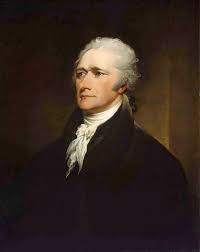Exploring the Life and Legacy of Alexander Hamilton

Introduction
ALEXANDER HAMILTON remains a monumental figure in American history, known for his critical role in shaping the United States’ financial system and his contributions as a Founding Father. His life story, marked by resilience and intellect, provides deep insights into the struggles and triumphs during the early years of the republic, making a compelling case for his relevance even today.
Early Life and Education
Born on January 11, 1755, in Charlestown, the capital of the Caribbean island of Saint Kitts and Nevis, Hamilton faced a challenging upbringing as an orphaned child. His academic prowess allowed him to secure a scholarship to study in the American colonies, where he developed a passion for writing and politics. He quickly rose through the ranks due to his talent and ambition, making significant connections in revolutionary circles.
Role in the American Revolution
Hamilton’s involvement in the American Revolution was pivotal. Initially appointed as an artillery captain, he showcased his leadership skills and strategic thinking, leading to his position as an aide-de-camp to General George Washington. His writings and speeches bolstered the revolutionary cause, and his contributions on the battlefield solidified his reputation as a key figure in the struggle for independence.
Contributions as a Founding Father
As a key architect of the American government, Hamilton’s vision was instrumental in the establishment of the Constitution. He advocated for a central banking system to stabilize the economy and proposed fiscal policies that would lay the groundwork for America’s future economic expansion. His Federalist Papers, authored alongside James Madison and John Jay, argued passionately for ratification of the Constitution and remain essential reading for understanding the American political system.
Legacy and Influence
Hamilton’s influence extends far beyond his lifetime, shaping the financial practices and governmental structure of the United States. His establishment of the First Bank of the United States and the Mint provided the economic foundation necessary for the country’s growth. Today, Hamilton’s story resonates through popular culture, perhaps most notably through Lin-Manuel Miranda’s Broadway musical, which has sparked renewed interest in his life and achievements.
Conclusion
In conclusion, Alexander Hamilton’s legacy is a vital part of American history. His vision for a strong central government and a robust economy not only guided the fledgling nation through its formative years but also set the stage for its future growth and prosperity. As current discussions regarding governance and economic policy continue to evolve, Hamilton’s insights remain relevant, reminding us of the foundational choices that continue to shape the United States. The examination of Hamilton’s life and ideas offers enduring lessons for generations to come.
